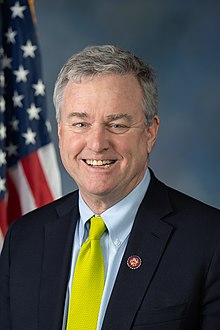Their introduction was led by Representative Trone.

Representative David Trone
Washington DC (KM) Two bipartisan bills to combat supply and demand for fentanyl into the US were introduced this week in Congress. Sixth District Representative David Trone (D-Md) led the effort.
One bill, called END FENTANYL (Eradicating Narcotic Drugs and Formulating Effective New Tools to Address National Yearly Losses) Act was introduced alongside Representative Michael Guest (R-Miss) It would require Customs and Border Protection to update its manual to help prevent drugs and other contraband from entering the United States. “Sometimes these agencies get stuck in rut, and just keep doing the same thing. It aint workin’,:” Trone says.
By reviewing its manual every three years as the bill states, Trone says it’s a way for CBP to look at the way they do things, and see if there’s a better way to stop fentanyl and other contraband from coming into the US from Mexico. “Humans are driving it across the border. And the methods which they bring it over the border from trucks, passenger cars, drones, all different ways, are particularly evolving and changing,”: he said.
Also introduced this week was the Modernizing Opioid Treatment Access Act with Representative Trone introduced with Congressmen Donald Norcross (D-NJ) and Don Bacon (R-Ne). Trone says it would make it easier for persons suffering addictions to obtain methadone. He says these patients often have to travel long distances from home to get it. “The issue is the average drive in the 500 counties across the counties across the US is 37-minutes. Some areas it’s up to two hours,” he says.
Trone says this bill would make sure methadone is available closer to home. “We can dispense methadone at many, many, many more places so it will save the drive time,” he says. “But most importantly, they can get a 30-day supply. We did that during COVD, and we want to continue that.”
Representative Trone is the Chairman of the US Commission on Combating Synthetic Opioid Trafficking. He also lost a nephew to an opioid overdose.
By Kevin McManus